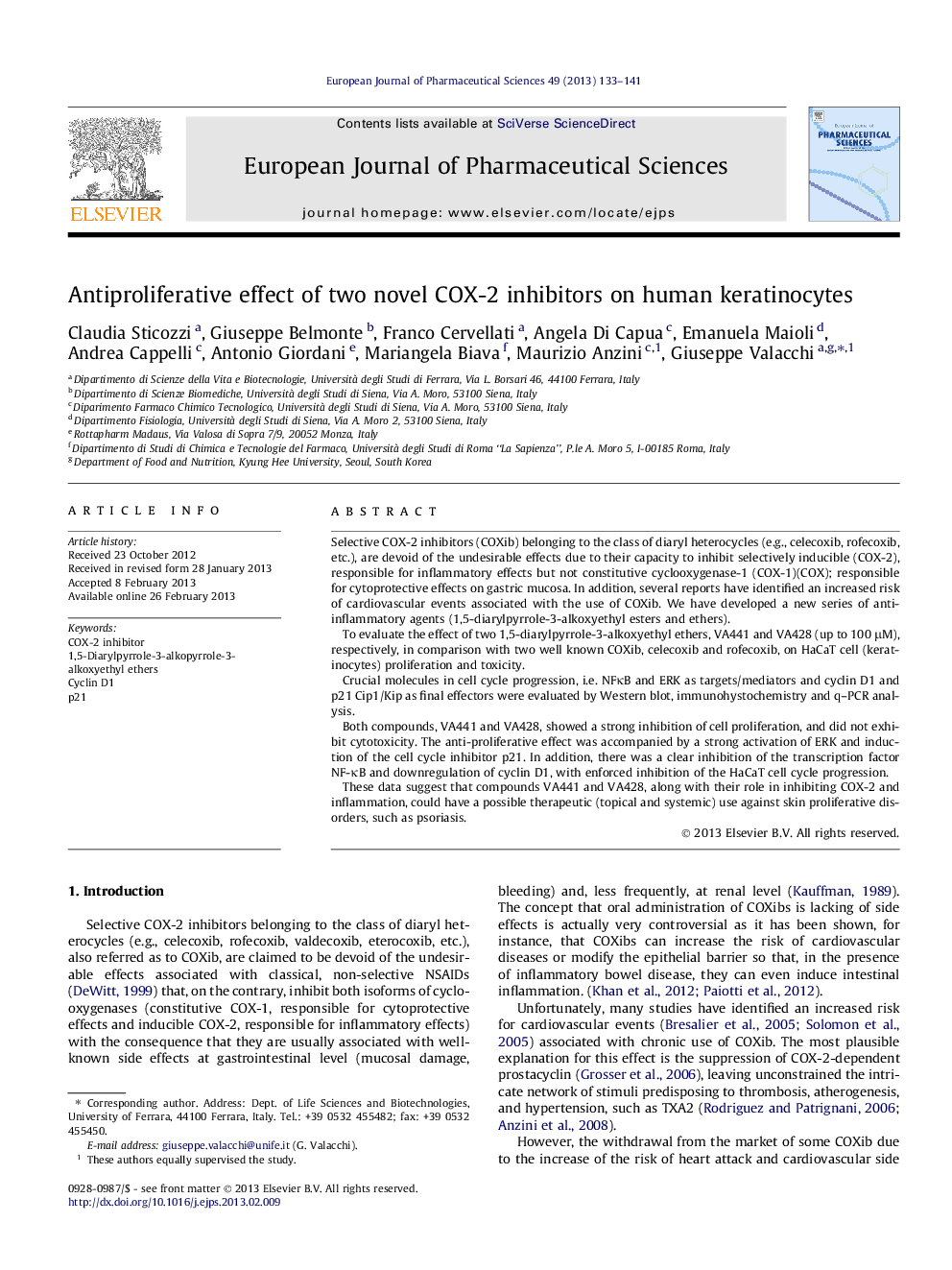| Article ID | Journal | Published Year | Pages | File Type |
|---|---|---|---|---|
| 5810107 | European Journal of Pharmaceutical Sciences | 2013 | 9 Pages |
Selective COX-2 inhibitors (COXib) belonging to the class of diaryl heterocycles (e.g., celecoxib, rofecoxib, etc.), are devoid of the undesirable effects due to their capacity to inhibit selectively inducible (COX-2), responsible for inflammatory effects but not constitutive cyclooxygenase-1 (COX-1)(COX); responsible for cytoprotective effects on gastric mucosa. In addition, several reports have identified an increased risk of cardiovascular events associated with the use of COXib. We have developed a new series of anti-inflammatory agents (1,5-diarylpyrrole-3-alkoxyethyl esters and ethers).To evaluate the effect of two 1,5-diarylpyrrole-3-alkoxyethyl ethers, VA441 and VA428 (up to 100 μM), respectively, in comparison with two well known COXib, celecoxib and rofecoxib, on HaCaT cell (keratinocytes) proliferation and toxicity.Crucial molecules in cell cycle progression, i.e. NFκB and ERK as targets/mediators and cyclin D1 and p21 Cip1/Kip as final effectors were evaluated by Western blot, immunohystochemistry and q-PCR analysis.Both compounds, VA441 and VA428, showed a strong inhibition of cell proliferation, and did not exhibit cytotoxicity. The anti-proliferative effect was accompanied by a strong activation of ERK and induction of the cell cycle inhibitor p21. In addition, there was a clear inhibition of the transcription factor NF-κB and downregulation of cyclin D1, with enforced inhibition of the HaCaT cell cycle progression.These data suggest that compounds VA441 and VA428, along with their role in inhibiting COX-2 and inflammation, could have a possible therapeutic (topical and systemic) use against skin proliferative disorders, such as psoriasis.
Graphical abstractDownload high-res image (63KB)Download full-size image
